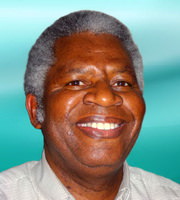
by Shellee-Kim Gold
Denial is a state of mind which blocks crucial parts of ourselves from being made aware and analyzed by our conscious processes.
Although denial is a problem that affects the human condition the world over, denial in addicts is particularly troublesome.
Denial defined: A defense mechanism
Denial acts as a defence mechanism, designed to protect us emotionally. It is the subconscious mind’s way of erecting a barrier to protect us so we don’t feel the pain of things as they are. As a result, we choose not to be honest with ourselves; and, consequently, with others, including those we love the most.
Yet, we put ourselves through this because we believe we can perform better and keep functioning as normal in our daily lives.
Don’t get it wrong; denial is not your friend. In fact, denial is your most lethal enemy. It is the number one way in which you can prevent your successful recovery from addiction, regardless of whether you’re already in recovery or have yet to get there.
Types of denial and the tell-tale signs
According to the American Psychiatric Association, the first step on the road to recovery is recognition, but the process is but is complicated by denial.
There are several types and stages of denial that will come up during an addict’s journey to recovery. Making excuses to justify behaviour (to both yourself and others) and self-deception are the hallmarks of addiction denial.
If you haven’t yet acknowledged you need help, you have likely used some of the following common patterns of denial:
- You convince yourself you’re cured when you’ve done nothing or little to resolve your problems.
- You tell yourself your problems aren’t your fault, and blame other people, such as your boss or partner. Thus, you are able to justify your problems and comes up with reasons why you don’t have to deal with them.
- You constantly compare yourself to others whom you perceive as having worse problems than you. In that way you can convince yourself that you don’t have a ‘serious’ problem.
- You mentally manipulate others, and feel triumphant when you’ve convinced them of your lies about your addiction; even though a part of you is screaming for help.
Just because you’ve dealt with the preliminary forms of denial and may be in a treatment programme or are even post-treatment, don’t fall into the trap of becoming smug! Denial can insidiously sneak back into your life when you aren’t paying attention. Be extra vigilant and watch out for the following symptoms of denial and relapse:
- Arrogance. Holding to the belief ‘it will never happen to me – again’ is an issue. Anyone can slip back into addiction at any time.
- Even though the person you’re having a relationship with may not be an addict, negative aspects of this union result in you veering off-track from your recovery.
- Allowing yourself to be sucked back into socializing with old using or boozing buddies. Choose your friends carefully.
Helpful Tools
Will power alone will not help in keeping you sober. Here are some tools you can use to stay clean:
- Practice of daily self-awareness, which will have a positive influence on all other areas of your life.
- Observe others. If there are more than a couple of people in your life who share the same thoughts regarding you and your destructive patterns of behaviour, chances are they’re right. Use their perspective to see yourself through different eyes.
- Keep connected to other recovering alcoholics and drug addicts; they provide essential support.
Recognising and acknowledging denial is crucial to successfully managing and overcoming addiction. Denial’s opposite is acceptance. Before you can accept yourself, however, you need to understand who you are. Make that a priority and you may find that staying clean becomes that much simpler.
Image Credit: http://www.flickr.com/photos/jessica_digiacomo/5311147795

















